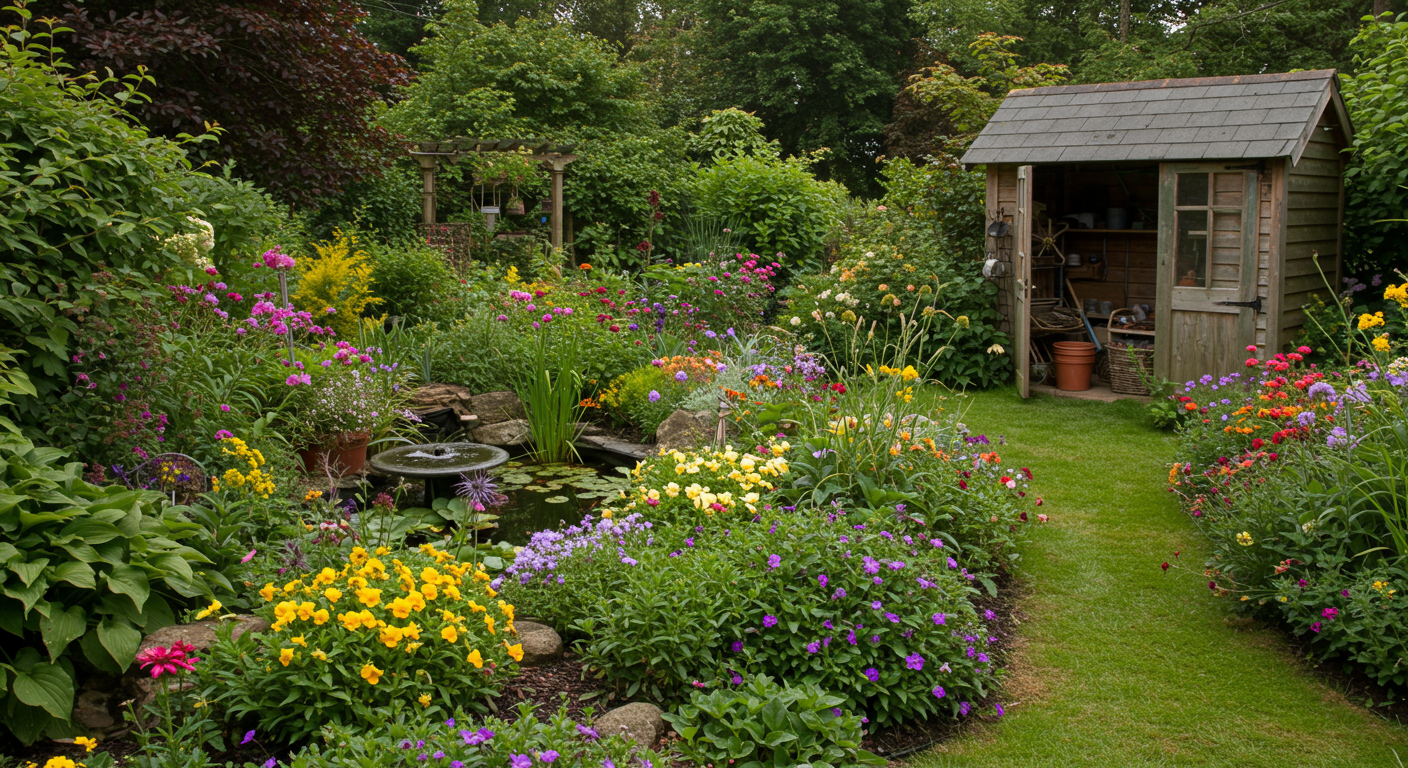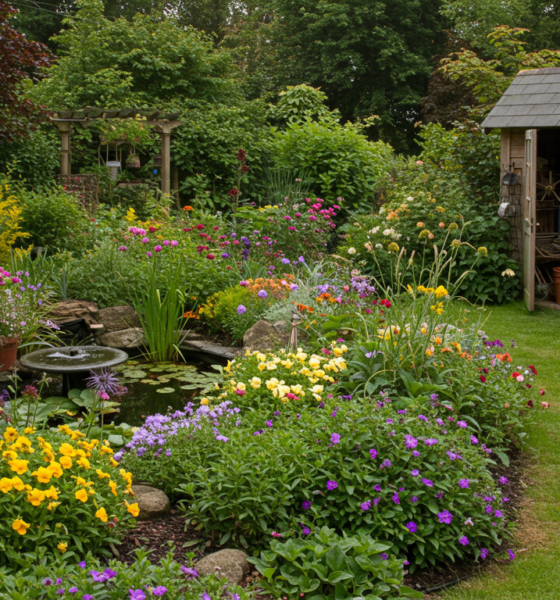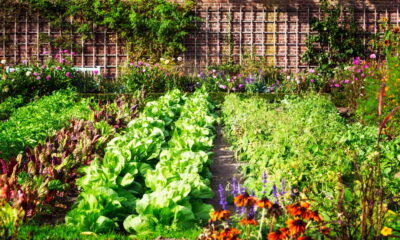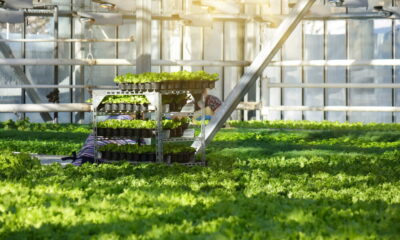

Environment
The Most Environmentally Friendly Types Of Paving For Your Garden
As we continue to navigate the challenges of climate change and environmental sustainability, our personal spaces—especially our gardens—offer a unique opportunity to make a positive impact.
The materials we choose for our outdoor areas can significantly influence local ecosystems, water cycles, and even urban microclimates. Paving, often overlooked as a mere functional element, can be transformed into a sustainable feature that complements nature rather than competing with it.
From permeable pavers that allow rainwater to recharge groundwater to recycled materials that reduce waste, there are numerous eco-friendly paving options available.
In this article, we will guide you through the most environmentally friendly types of paving, helping you create a garden that is not only beautiful but also environmentally conscious.
1. Recycled Materials
One of the most sustainable paving options is using recycled materials such as reclaimed bricks, stones, or concrete. These materials are typically salvaged from old buildings and construction sites, preventing them from ending up in landfills.
– Benefits:
Using recycled materials helps to reduce landfill waste and conserve natural resources by minimizing the need for new raw materials.
They require less energy for processing compared to newly manufactured products.
Reclaimed bricks and stones add a rustic charm to your garden while promoting sustainability.
– Applications: Ideal for patios, pathways, or decorative borders.
2. Permeable Pavers
Made from materials like concrete, plastic grids, or natural stone, permeable pavers are an excellent choice for eco-conscious gardens. Unlike conventional concrete or asphalt, they are designed to allow water to seep through their surface into the ground below. This helps reduce stormwater runoff, replenish groundwater reserves, and prevent soil erosion.
– Benefits:
These pavers help minimize flooding risks by allowing rainwater to percolate naturally into the soil
They also filter pollutants from water runoff, improving soil health and preventing erosion
– Applications: Suitable for driveways, walkways, and patios.
3. Gravel
Gravel is a cost-effective and versatile paving material that offers excellent drainage properties. It can be sourced locally, reducing transportation emissions and costs. Additionally, gravel requires minimal energy-intensive manufacturing processes compared to other paving materials.
– Benefits
Highly permeable, reducing water pooling and runoff
Minimal processing required, lowering carbon footprint
Provides a rustic, natural aesthetic
Easy to install and maintain
– Applications: Perfect for pathways, seating areas, or as a base layer beneath other pavers.
One thing to consider with gravel is that it may shift over time, requiring occasional raking or replenishment. However, stabilizers or edging can help keep the material in place. Decomposed granite is an especially good choice because it compacts well while maintaining permeability.
4. Grass Pavers
Grass pavers are an innovative solution that offers a unique blend of functionality and environmental benefits. They consist of interlocking grids that allow grass to grow through them, creating a permeable surface.
– Benefits:
Grass pavers enhance aesthetics by integrating greenery into paved areas while offering benefits such as absorbing carbon dioxide and reducing heat retention.
They also help prevent soil erosion and support local ecosystems.
– Applications: Suitable for driveways, parking areas, or walkways where both durability and sustainability are needed.
5. Porous Asphalt and Concrete
Porous asphalt and concrete are innovative solutions designed with voids that allow water passage through their structure.
– Benefits:
These materials help recharge groundwater reserves while reducing urban heat islands by lowering surface temperatures.
Their durability makes them suitable for heavy traffic areas without compromising environmental benefits.
– Applications: Best suited for driveways or large paved areas requiring high durability.
6. Wood
Sustainably sourced wood, such as reclaimed timber or FSC-certified hardwood, makes an excellent choice for raised garden pathways or decking. By choosing naturally rot-resistant woods like cedar or teak, you can extend the lifespan of your wooden walkways without relying on chemical treatments.
– Benefits:
Wood is biodegradable and renewable, aligning well with sustainable garden practices.
Additionally, wood blends seamlessly with garden landscapes, creating a harmonious and natural look.
Another benefit of wood is its versatility; it can be repurposed or refinished over time, extending its lifespan and reducing waste.
Lastly, wood provides a warm and natural aesthetic, adding character and charm to outdoor spaces.
– Applications: Suitable for raised garden beds, pathways, pergolas, fencing, edging, planters, and decking.
7. Recycled Plastic Pavers
Innovative paving solutions now include recycled plastic pavers made from low-density polyethylene (LDPE) waste. These pavers are created by blending sand with molten plastic to form durable tiles. This approach not only addresses plastic waste disposal but also provides strong and water-resistant paving options.
– Benefits:
By repurposing plastic waste into functional tiles, these pavers help reduce pollution and promote resource efficiency.
They are weather-resistant and require minimal maintenance.
– Applications: Suitable for patios or decorative pathways.
8. Natural Stone with Sand Joints
For an elegant yet eco-conscious option, natural stone paving with sand or gravel joints is a great alternative to cemented stone patios. Unlike fully grouted stone pavers, this approach maintains permeability, allowing water to pass through the gaps.
– Benefits:
Natural stone is incredibly durable and resistant to weather conditions, ensuring it remains beautiful over time.
Its natural origin and minimal processing make it an environmentally friendly choice.
The use of sand joints promotes water infiltration, reducing stormwater runoff and supporting soil health.
– Applications: Suitable for patios, walkways, driveways, and pool surrounds where both durability and aesthetic appeal are desired.
9. Recycled Rubber Pavers
Recycled rubber pavers are made from repurposed materials, primarily old tyres. They are soft underfoot, making them ideal for garden pathways and play areas.
– Benefits:
By using recycled materials, these pavers help to reduce landfill waste and promote sustainability.
They are shock-absorbent and slip-resistant, providing a safer surface for outdoor spaces, especially in areas prone to moisture.
Their durability and low maintenance needs make them cost-effective over time.
The variety of colours and textures available ensures they can fit into any garden design.
– Applications: Suitable for patios, walkways, driveways, and pool surrounds where both eco-friendliness and safety are priorities.
Choosing the Right Eco-Friendly Paving for Your Garden
When selecting an environmentally friendly paving option, it is important to consider the following factors:
Water Drainage: Opt for permeable materials to prevent runoff and encourage groundwater recharge.
Sustainability of Materials: Choose reclaimed, recycled, or naturally abundant materials to align with sustainability practices.
Aesthetic Appeal: Select a paving style that complements your garden design.
Durability and Maintenance: Consider how much upkeep the material requires and whether it can withstand the elements.
By choosing sustainable paving solutions, you can create a beautiful, functional garden while minimizing environmental impact. Whether you opt for reclaimed bricks, gravel paths, or living pathways, each eco-friendly choice contributes to a greener future for your outdoor space.


 Environment12 months ago
Environment12 months agoAre Polymer Banknotes: an Eco-Friendly Trend or a Groundswell?

 Features11 months ago
Features11 months agoEco-Friendly Cryptocurrencies: Sustainable Investment Choices

 Features12 months ago
Features12 months agoEco-Friendly Crypto Traders Must Find the Right Exchange

 Energy11 months ago
Energy11 months agoThe Growing Role of Solar Panels in Ireland’s Energy Future

























